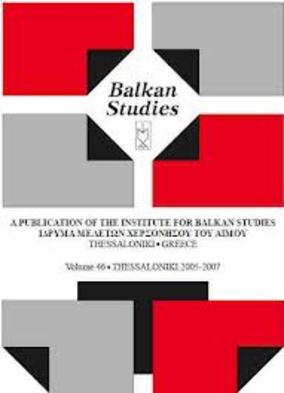Man and the state in Serbia, from the fourteenth to the mid-nineteenth century : a study in centralist and anti-centralist conflict
Part of : Balkan studies : biannual publication of the Institute for Balkan Studies ; Vol.27, No.1, 1986, pages 3-27
Issue:
Pages:
3-27
Section Title:
Articles
Author:
Abstract:
This study traces the struggle between centralist and anticentralist impulses in Serbian history through several historical epochs: the early tribal;the feudal nemanyid and ottoman; and the era of early merchant capital fromthe 14th through the mid-19th centuries, and establishes it as an importantdeterminant in Serbia’s history.In the earliest period following the arrival of the Slavs in the Balkansa whole host of local officials were established within the localities from theByzantine era zupani who headed zupans (administrative districts) throughthe medieval local officials mentioned in the Code of Dusan from the importantknez (prince) to the more popular local officials (primicur, vojnik,celnik, predstajnik, and staresina). These officials were recognized by theottoman administration under the feudal Timariot system of land tenure, inaddition to the obor-knez when the Austrians occupied Belgrad Pashaluk.The clan and tribal social order which had been disintegrating was revivedand reinstitutionalized during the Ottoman period reinforcing local particularism,integrating with a transitional early merchant capital. Under theimpact of a growing capitalist agriculture in the Balkans, the feudal Timariotland tenure system began to disintegrate. When dispossessed and landlessformer Spabija landholders and rampaging Janissaries began seizing land inSerbia and other Balkan areas, enserfing the peasantry, they clashed withdeeply rooted, centuries old traditions of self-government in Serbia, ignitingthe First Revolt (1804-1813). Further conflicts developed within the insurrectionbetween the leader of the First Revolt, Karadjordje, and the regionalleaders (vojvode) supported by the Russians and later between his successors,Prince Milos Obrenovic and Prince Alexander Karadjordje into the midnineteenthcentury, either undermined or supported by Russia, Austria, or other Great Powers.
Subject:
Subject (LC):




